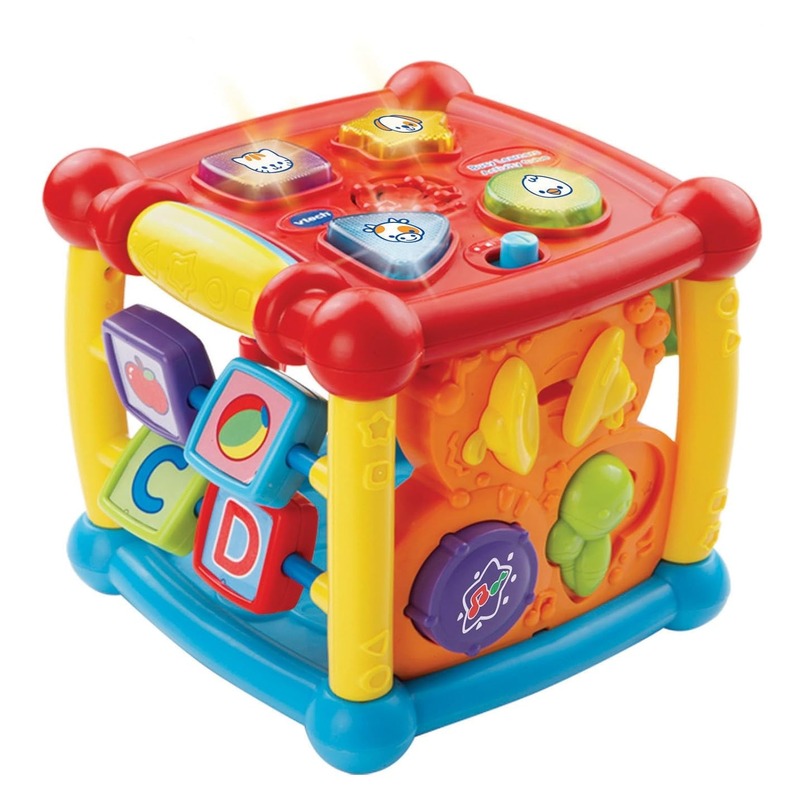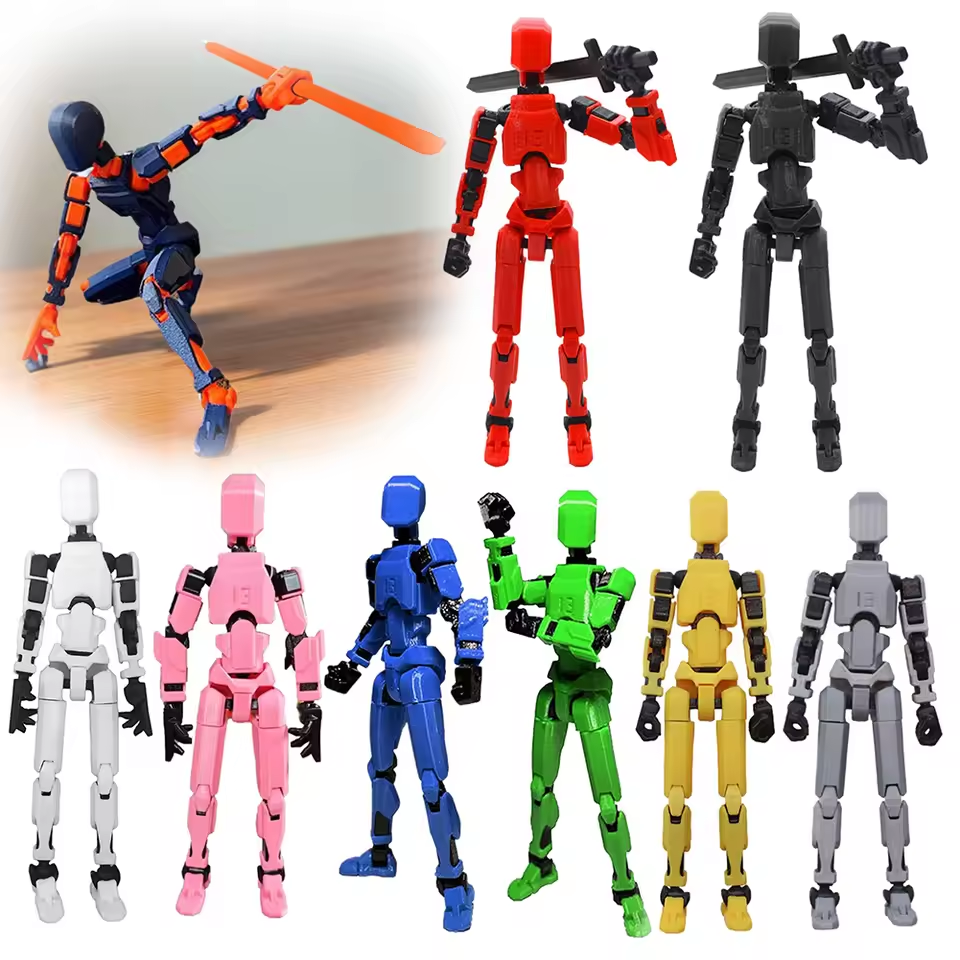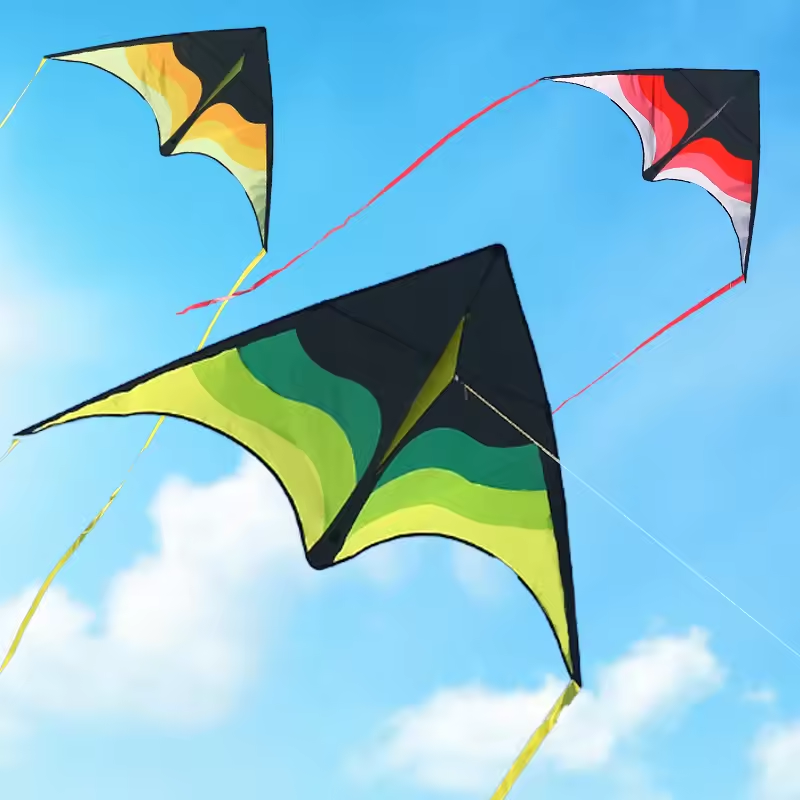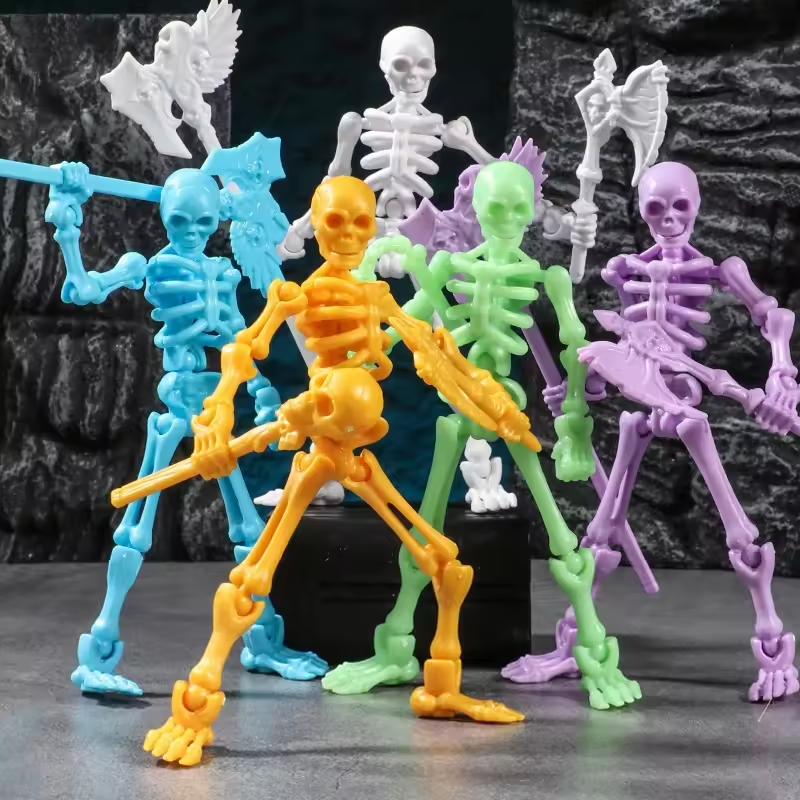The Importance of Educational Play in Early Childhood
Educational play is crucial in the early stages of a child’s development. It goes beyond mere entertainment, profoundly impacting their social, emotional, and cognitive growth. Integrating educational toys into playtime can substantially benefit toddlers, facilitating better learning and understanding of Educational toys for toddlers.
Firstly, educational toys promote cognitive development. They challenge the mind, help toddlers learn cause and effect, and improve problem-solving skills. These toys often encourage questions and curiosity, which are the stepping stones for lifelong learning.
Secondly, through play, toddlers develop crucial social skills. Educational toys often require sharing and cooperation, especially during group play sessions. This interaction teaches toddlers how to communicate, cooperate, and resolve conflicts, laying the foundation for social interaction.
Thirdly, emotional development is also enhanced by educational toys. Toys that require patience and offer challenges, such as building blocks or puzzles, help toddlers learn persistence and emotional regulation. Celebrating achievements in these tasks boosts their confidence and self-esteem.
Lastly, educational toys make learning enjoyable. By merging education with fun, toddlers are more engaged and eager to explore. This positive attitude towards learning can persist as they grow, contributing to their educational journey.
Therefore, the inclusion of educational toys for toddlers isn’t just about play; it’s about setting the groundwork for a brighter, more knowledgeable future.
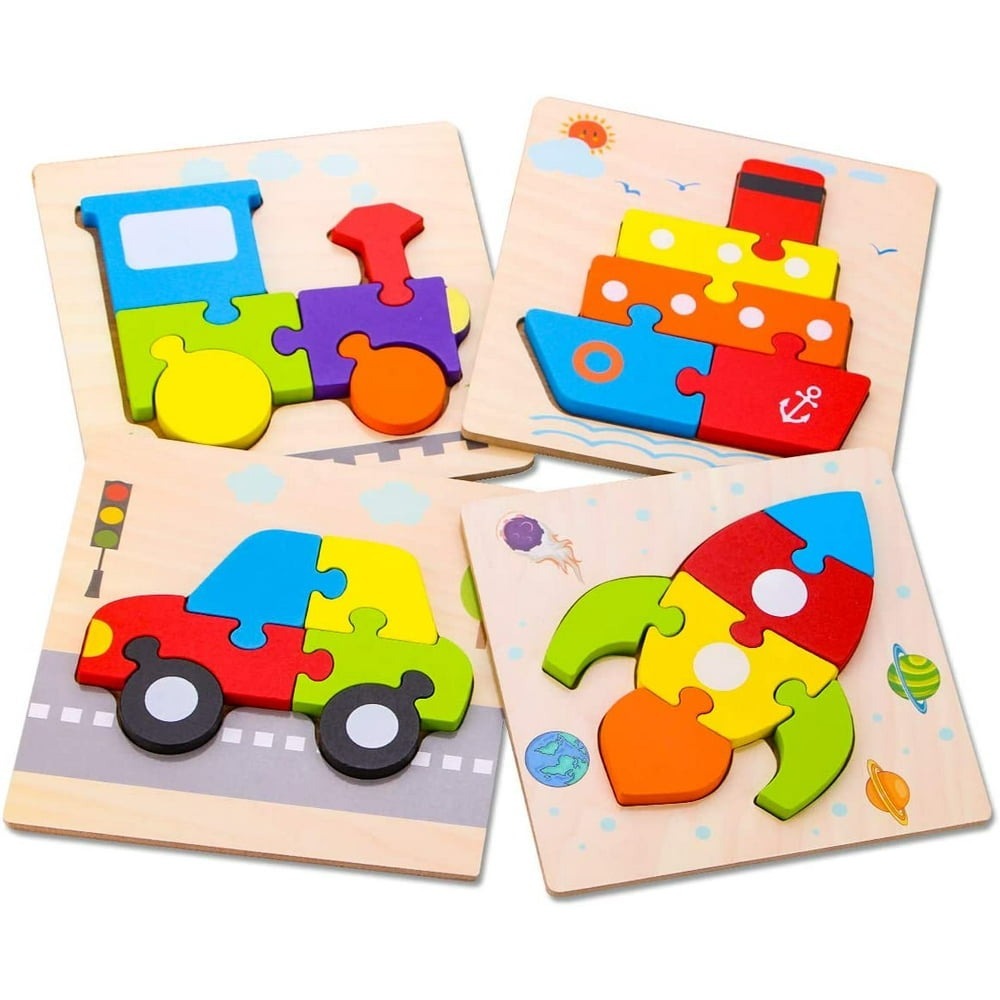
Top Rated Educational Toys for Toddlers in 2024
Choosing the best educational toys for toddlers can be daunting given the plethora of options available. However, certain toys have risen to the top in 2024 because they combine fun with foundational skills development. Here are some of the top picks this year that can engage and educate your toddler.
Interactive Storybooks provide a blend of reading pleasure and interaction. They help in language development and can teach sounds, words, and storytelling basics.
Shape Sorters are classic for a reason. They enhance cognitive skills by teaching toddlers to match shapes and colors, and improve hand-eye coordination.
Magnetic Building Blocks inspire creativity and introduce basic engineering concepts. These blocks can be rearranged endlessly, promoting both fine motor skills and spatial awareness.
Puzzle Sets tailored to toddlers not only entertain but also challenge them. Puzzles improve problem-solving abilities and perseverance as toddlers figure out where each piece fits.
Musical Instruments like miniature drums or xylophones encourage an early love for music and rhythm. They also help in developing auditory skills and a sense of beat.
Counting Toys that involve numbers, such as abacuses or counting beads, make mathematics approachable by turning it into a hands-on experience.
Sensory Bins filled with different textures and objects can captivate toddlers’ attention. Sensory play is vital for cognitive growth and can aid in sensory processing.
It’s essential to note that while these toys are highly rated, each child is unique. Consider your toddler’s interests and developmental milestones when selecting a toy. Above all, the best educational toy for your toddler is one that they will enjoy and can learn from repeatedly.
Choosing the Right Educational Toy for Your Toddler’s Age and Stage
Selecting the perfect educational toy for your toddler is crucial. Toys should match their developmental stage and age. Younger toddlers may enjoy simple texture books and rattles. These toys stimulate their senses and foster basic hand-eye coordination. As they grow, more complex toys are suitable. Older toddlers benefit from toys that challenge their problem-solving skills. Think of interactive puzzles and basic board games.
Choosing age-appropriate toys ensures that your toddler isn’t frustrated by too much complexity. It also avoids them getting bored with toys that are too simple. Here’s how to align toys with development:
- 12 to 18 months: Look for toys that promote walking and talking. Push toys and simple speaking dolls are great picks.
- 18 to 24 months: Introduce toys that boost fine motor skills. Simple shape sorters and large-piece puzzles work well.
- 2 to 3 years: Choose toys that encourage pretend play. Play kitchens, dress-up clothes, and action figures stimulate imagination.
- 3 years and up: Focus on toys that require more logic. Simple board games and counting toys enhance cognitive abilities.
Always consider your child’s unique interests and progress. Remember, the best educational toys for toddlers are those they can grow with. They should spark joy and inspire a love for learning at every stage.
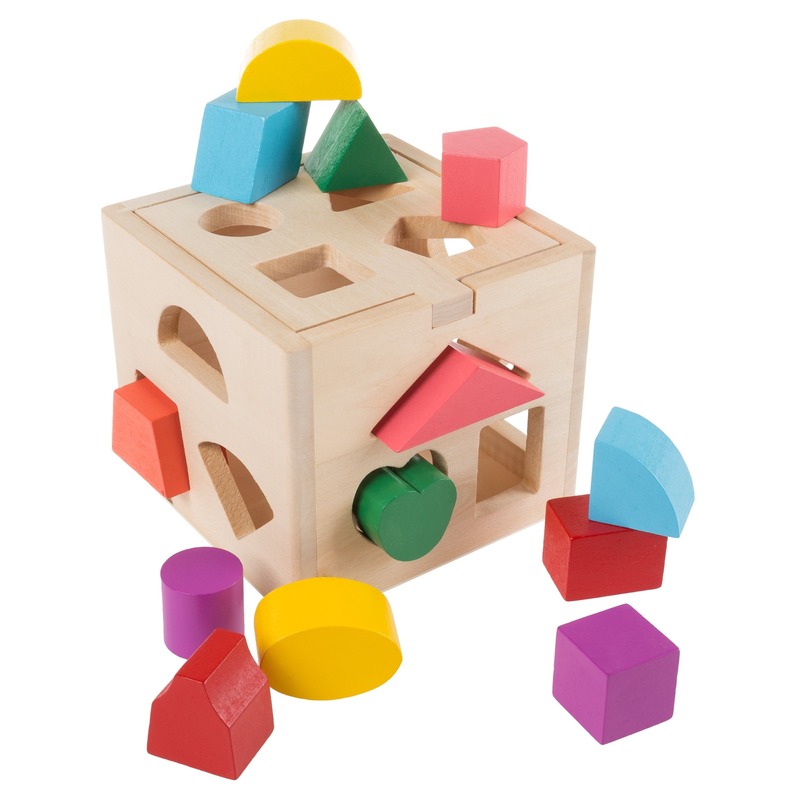
Cognitive Development: Educational Toys that Promote Thinking Skills
Educational toys for toddlers play a pivotal role in enhancing cognitive development. These toys engage young minds, fostering early critical thinking and problem-solving skills. Let’s delve into some educational toys that are designed to promote thinking skills in toddlers.
Building Sets: Such toys, like Lego Duplo or large interconnecting blocks, allow toddlers to construct and create. They explore shapes and balance, learning how logic and structure work together.
Memory Games: Simple card matching games sharpen recall abilities. Toddlers enjoy the challenge of finding pairs and remembering locations of previously seen cards.
Board Games: Basic board games introduce toddlers to rules and strategy. Games with simple objectives teach them to think ahead and plan their moves.
Puzzles: Toddler-appropriate puzzles with large pieces encourage them to figure out where each piece fits. This boosts their spatial reasoning and problem-solving.
Role-Playing Kits: Dress-up clothes and playsets, like doctor’s kits, spark imagination. Toddlers practice scenarios, which helps them understand the world around them.
Sorting and Stacking Toys: Toys that require sorting of shapes or stacking rings in order offer a fun challenge. They improve both cognitive skills and hand-eye coordination.
Providing educational toys that stimulate thinking is critical for toddlers. These toys help them make sense of their environment and develop vital cognitive skills. By choosing toys that challenge and engage, you’re equipping your toddler with the tools for future learning success.
Motor Skills Enhancement with Educational Toys
Educational toys play a crucial role in enhancing toddlers’ motor skills. They lay the foundation for improved coordination and physical abilities. Let’s look at some types of toys that help develop these important skills.
Stacking and Building Toys: These include blocks and stacking cups. Toddlers learn to stack and balance, enhancing motor precision and hand-eye coordination.
Pull and Push Toys: Toys that toddlers can pull or push, like wagons or push-cars, strengthen their gross motor skills. These actions help in muscle development and balance.
Art and Craft Supplies: Simple items like large crayons, chunky paintbrushes, or dough help toddlers refine their fine motor skills. These encourage creativity while improving hand control.
Bead Threading Sets: Threading beads onto a string is great for tiny hands. It boosts dexterity and hand-eye coordination, key for motor development.
Interactive Tech Toys: Some tech toys are designed to develop motor skills through interactive play. Touchscreens that require tapping or swiping can improve finger coordination.
Choosing the right educational toys for motor skills is crucial. These toys not only improve physical abilities but also integrate fun and education. Always select age-appropriate toys that challenge yet entertain your toddler. They encourage growth in both cognitive and motor dimensions, making learning enjoyable and productive.
The Role of Sensory Play in Toddler Learning
Sensory play is vital in a toddler’s learning process. It involves activities that stimulate the senses. These can include touch, sight, smell, taste, and hearing. Sensory play supports cognitive growth, language development, and fine motor skills. It encourages problem-solving and decision-making in real-time scenarios.
Engaging the senses plays a crucial role in brain development. Toddlers learn best when they can touch, see, and manipulate objects. For instance, sensory bins filled with rice or beans allow toddlers to explore textures and shapes. They learn concepts like full, empty, heavy, and light through such play.
Building language skills is another advantage of sensory play. As toddlers describe what they feel or see, they enhance their vocabulary and language skills.
Emotional development is also promoted through sensory challenges. Activities like water play or kinetic sand help toddlers express their emotions. They learn to cope with new sensory experiences in a controlled environment.
In summary, integrating sensory play using educational toys enriches toddlers’ learning experiences. It lays a strong foundation for future educational growth. Parents should include sensory-rich toys and activities to encourage comprehensive development.
Balancing Fun and Education: How to Keep Toddlers Interested
Keeping toddlers engaged with educational toys requires a blend of fun and learning. To maintain their interest, it’s essential to balance educational value with enjoyable elements. Here are some tips to ensure that the educational toys you select will hold your toddler’s attention while aiding their development:
- Choose Bright, Colorful Toys: Toddlers are drawn to vibrant colors. Pick toys that are visually appealing to foster engagement.
- Incorporate Variety: Toddlers can tire of the same activity. Rotate toys to keep them curious and interested.
- Ensure Interaction: Toys that respond to a child’s action, like buttons that produce sounds, keep play dynamic.
- Go for Multi-Sensory Experiences: Toys that stimulate multiple senses at once tend to captivate toddlers for longer periods.
- Set Challenges According to Ability: Make sure the toy provides just the right level of challenge. Too hard or too easy, and the child may lose interest.
- Mix in Familiar and New Concepts: Introduce new ideas but also include familiar concepts so toddlers feel confident while exploring.
- Include Story and Character Play: Toys that include characters or a narrative can enhance creative play and make educational aspects more engaging.
By selecting educational toys for toddlers that are also fun, you provide an enriching playtime experience. These toys will not only hold their attention but will also foster their love for learning.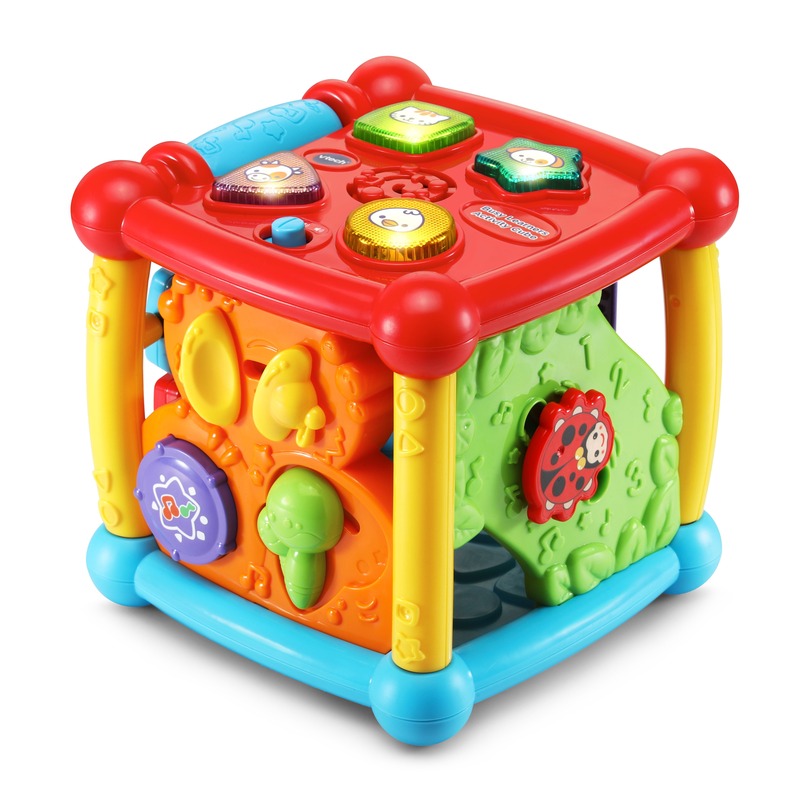
Safety Considerations When Choosing Educational Toys
When selecting educational toys for toddlers, safety is paramount. Here are important safety tips to keep in mind:
- Check for Small Parts: Avoid toys with tiny components. They pose choking hazards.
- Verify Age Recommendations: Ensure toys match your toddler’s age. This reduces risks of mishaps.
- Look for Non-Toxic Materials: Choose toys made from safe, non-toxic materials.
- Inspect for Sharp Edges: Toys should be smooth and free of sharp edges to prevent injuries.
- Read Safety Labels: Pay attention to safety labels. They provide crucial information.
- Quality over Quantity: Opt for fewer high-quality toys. They are usually safer.
- Avoid Loud Toys: Extremely loud toys can harm a child’s hearing.
Employing these safety measures can make playtime both fun and safe for toddlers. Parents and caregivers should always supervise play to ensure safety.
